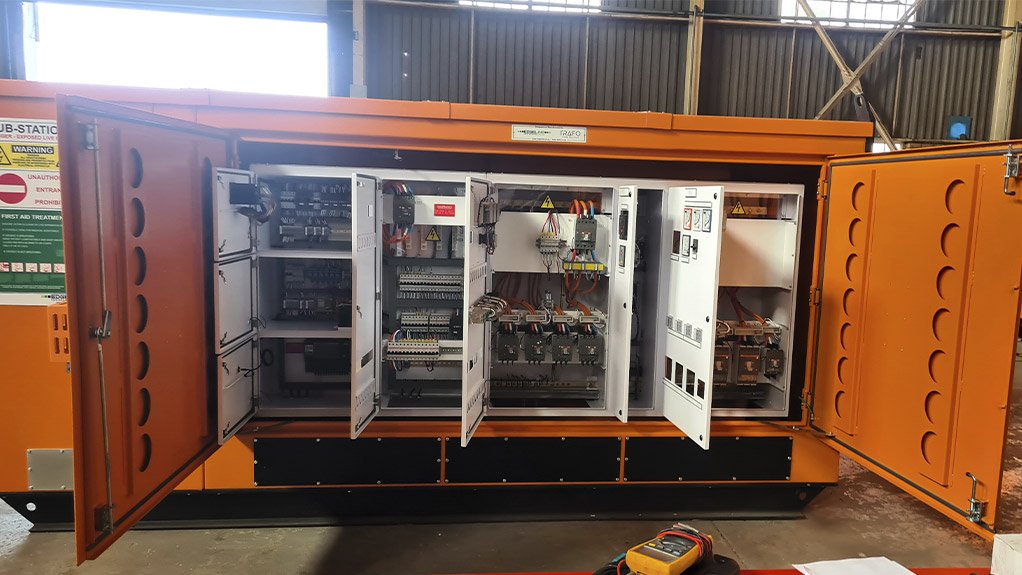South African company Trafo Power Solutions has supplied 40 dry-type mini-substations and seven standalone ring main units, to a large copper mine in the Democratic Republic of Congo (DRC).
The mini substations include units of between 630 kVA and 1 600 kVA capacity with primary voltages of 11 kV and 33 kV. The secondary voltage configurations are 400 V, 690 V and 1 000 V, with some units having dual-ratio secondaries. Protection against the ingress of water and dust was designed into the units, with an IP54 ingress protection rating.
Fully designed and manufactured in South Africa, the company notes that the mini-substations were completed in a streamlined production process that facilitated a fast-track delivery in batches of five to six units every 10 days. After the manufacturing and assembly process, each unit went through a programme of intensive testing before it was ready for dispatch.
“The units are designed to be as compact as possible,” explains Trafo Power Solutions MD David Claassen. “While many will be used for surface infrastructure, the design had to ensure that they could be used underground, where space is limited.”
The technology in dry-type transformers uses air rather than oil to cool the windings, making it safer with less risk of fire, explosion or environmental contamination through leakage. The windings in dry-type transformers are also encapsulated with cast resin, protecting them against humidity levels up to 95%. This makes it particularly suitable for underground environments, governed by stringent safety regulations and standards.
Air-to-air heat exchangers help to reduce the footprint of the units and eliminate the need for oil testing or oil changing. Air is channelled through the transformer windings and flows over the aluminium tubes of the heat exchanger, while a fan blows air through the tubes to cool the air on their outer surface.
“The substation design also includes arc protection, which will shut the unit down in the event of an arc occurring – before any further damage can be caused,” says Claassen. Each mini-substation is equipped with a control system that will allow the protection functions to be monitored remotely.
“The ring main units are fully motorised and controlled externally by remote pendant switching,” he says. “This enhances safety and ease of management, so that personnel seldom have to open the panel doors, which requires the necessary safety equipment and protocols.”
The transformers are rated for Class H insulation – for temperatures up to 180 oC – while the dual-voltage boards are described as sizeable for a relatively complex voltage distribution system on each mini-substation.
The contract was conducted through a South African engineering, procurement and construction management, or EPCM, firm.
EMAIL THIS ARTICLE SAVE THIS ARTICLE
To subscribe email subscriptions@creamermedia.co.za or click here
To advertise email advertising@creamermedia.co.za or click here













